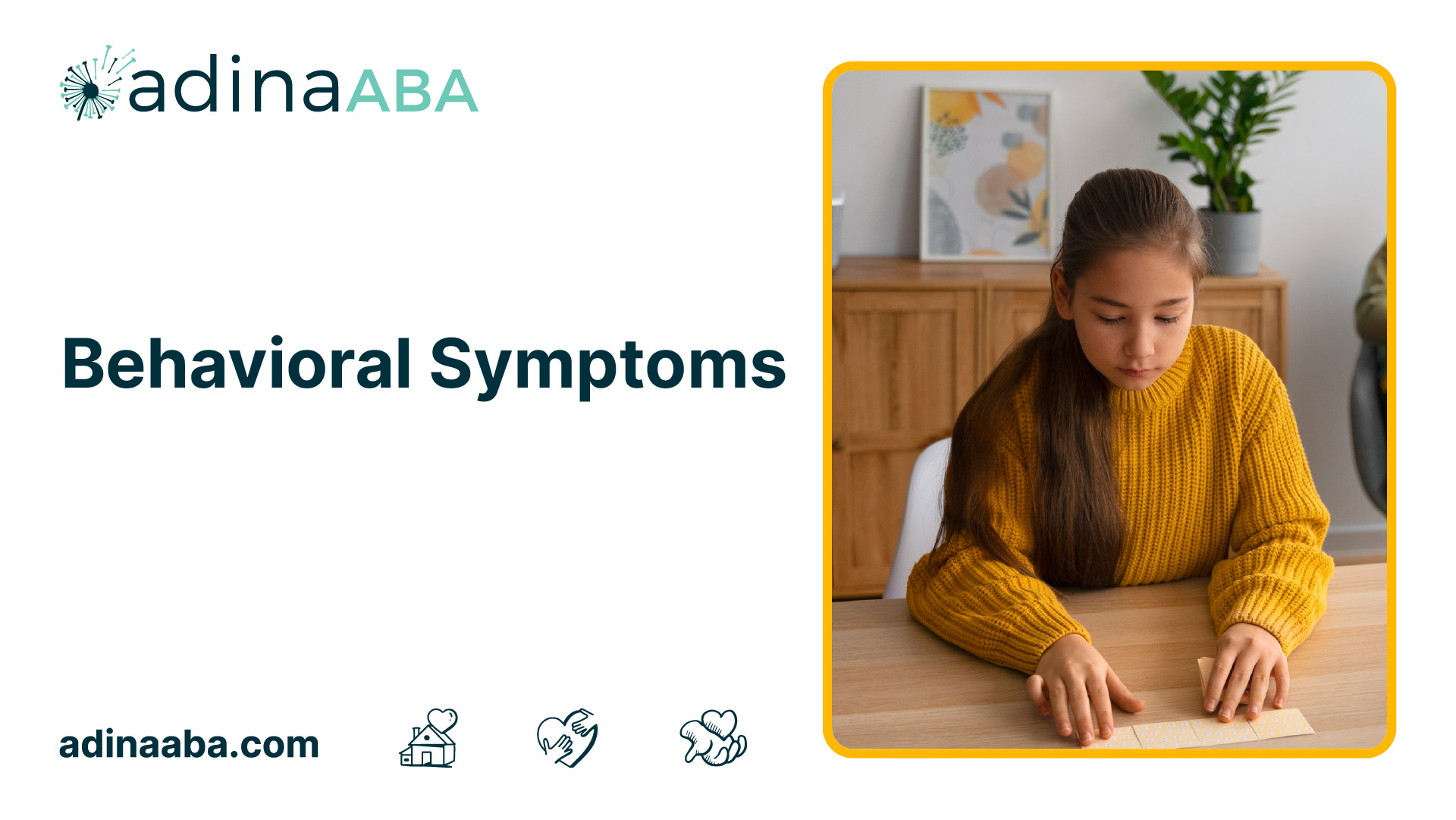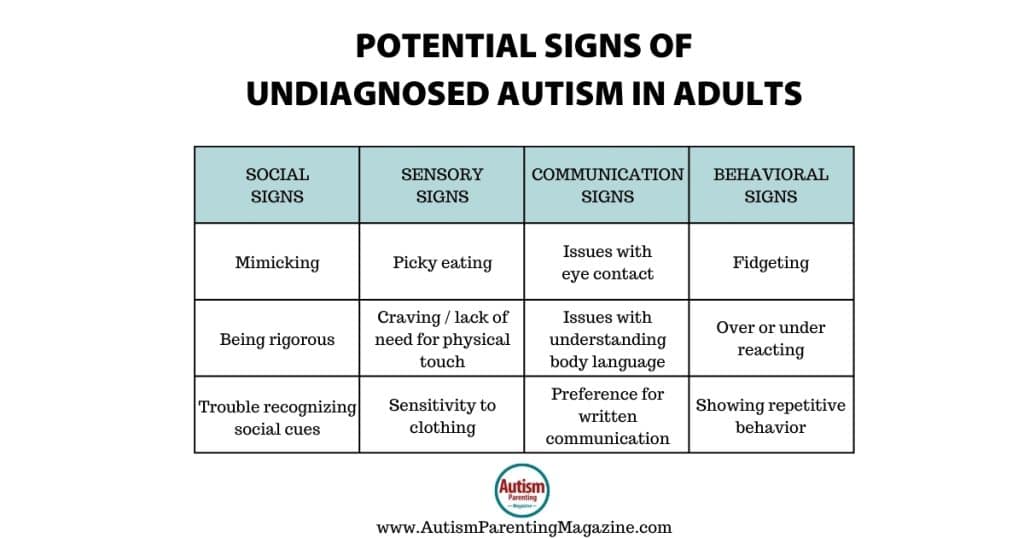How experts in Autism Spectrum Therapies approach nonverbal communication barriers
How experts in Autism Spectrum Therapies approach nonverbal communication barriers
Blog Article
Key Symptoms And Signs to Acknowledge in Individuals With Behavioral Autism
When you come across a person with behavior autism, recognizing crucial indicators and symptoms is vital. Furthermore, sensory level of sensitivities can lead to frustrating experiences.
Obstacles in Social Interactions
When you connect with a person on the autism spectrum, you might observe they have problem with social hints and interaction. These difficulties can make social communications feel frustrating for them. You may see them staying clear of eye contact or standing too close or also far throughout conversations, which can develop misunderstandings. They could not notice body language or faces, making it harder for them to evaluate just how others are feeling.
When they do engage, they might talk about their passions in terrific detail without noticing if you're interested. Comprehending these challenges can help you come close to communications with empathy and patience, fostering a much more comfy setting for both of you.
Trouble With Verbal and Non-Verbal Interaction

Identifying these signs is necessary, as it assists you much better support and engage with people on the autism spectrum. By understanding their communication difficulties, you can foster more meaningful links and give a more supportive environment.
Repetitive Behaviors and Routines
Communication challenges usually accompany other indications of autism, such as repeated habits and a strong preference for routines. You may discover that individuals with autism frequently involve in details, repeated activities, like hand-flapping, rocking, or repeating expressions. These habits can give convenience and a feeling of control in a typically overwhelming world.
Routines are similarly essential; several people thrive when they adhere to a structured timetable. You might find that adjustments to these regimens can lead to considerable distress. For instance, if they have a daily routine of eating morning meal at a certain time or complying with a particular course to school, any type of interruption can create anxiousness.
Acknowledging these patterns helps you understand their actions and give support. By suiting their need for routine and permitting repetitive actions, you can produce a more comfortable setting that reduces their challenges.
Sensory Sensitivities

Typical Sensory Triggers
Sensory level of sensitivities can significantly impact every day life for individuals with autism, as particular stimuli frequently set off overwhelming reactions. Typical sensory triggers consist of loud sounds, brilliant lights, and strong smells. You may observe that sudden noises, like alarm systems or sirens, create anxiousness or distress. Likewise, fluorescent lights in stores can really feel uneasy and severe. Appearances can also play a substantial role; rough materials or particular food textures might be excruciating for you. In addition, crowded places can overwhelm your senses, making it tough to focus or relax. Understanding these triggers can assist you manage your atmosphere better. By understanding what influences you, you can take actions to decrease pain and boost your daily experiences.
Behavioral Reactions Described
Recognizing your behavioral feedbacks to sensory level of sensitivities is necessary, as they frequently disclose exactly how you connect with the world. You might also locate yourself looking for particular sensory experiences, like deep pressure or peaceful environments, to assist ground yourself. Identifying these patterns assists you understand your requirements better and can lead just how you interact them click for info to others.
Coping Methods Review
Acknowledging your sensory level of sensitivities is simply the very first step; currently it's time to discover coping strategies that can assist you take care of those experiences efficiently. Beginning by developing a sensory toolkit tailored to your needs. This might consist of noise-canceling earphones, fidget playthings, or calming fragrances. Establishing an organized regimen can also offer predictability, minimizing anxiousness around sensory overload. Take breaks in a silent space to regroup when you feel overwhelmed. Practicing mindfulness methods such as deep breathing can aid ground you in the minute. Additionally, communicate your requirements with those around you; having encouraging loved ones can make a big distinction. Bear in mind, discovering what functions finest for you might take time, so be patient and open to trying new techniques.
Limited Interests and Emphasis
While lots of individuals develop a wide variety of rate of interests, those with autism commonly demonstrate restricted passions and an extreme emphasis on particular subjects. You might see that someone with autism can invest hours delving into their favored subject, whether it's a particular kind of train, a certain film, or a clinical idea. This extreme focus isn't simply a pastime; it can become a main part of their identification and social interactions.
You may locate that conversations rotate around these interests, and they may struggle to involve in broader topics. By understanding and acknowledging these limited interests, you can promote an encouraging environment where they feel valued and recognized, permitting for more meaningful connections and communications.
Psychological Regulation Difficulties
Individuals with autism typically deal with challenges in emotional regulation, which can be affected by their intense concentrate on particular interests. You might notice that when an individual is deeply participated in a recommended activity, they can experience strong feelings, whether exhilaration or stress. This strength often makes it difficult for them to move gears or handle their sensations when things don't go as planned.

Variability in Developing Landmarks
When it pertains to developmental turning points, you'll observe that individuals with autism commonly reveal a vast array of variability. Some may strike turning points on time, while others could hang back or development at a various pace. As an example, you could see a child master language abilities but battle with social communications. This disparity can be complex, as typical benchmarks don't constantly use.
It's essential to identify that each person's journey is distinct. Observing these patterns can help you understand their toughness and requires better.
Often Asked Concerns
Exactly How Is Autism Identified in Children and Grownups?
To detect autism in kids and adults, specialists review habits, communication abilities, and social communications. If a specific satisfies the criteria for autism range problem., they often make use of standard examinations, meetings, and monitorings to determine.
Are There Different Sorts Of Autism Spectrum Disorders?
Yes, there are various sorts of autism spectrum conditions, including Asperger's disorder and pervasive developing disorder-not otherwise specified. recommended you read Each kind varies in intensity and qualities, so recognizing these distinctions can aid you far better assistance individuals you can find out more with autism.
What Treatments Are Reliable for Individuals With Autism?
When considering efficient treatments for people with autism, you'll discover choices like Applied Actions Analysis, speech therapy, and work therapy. Each strategy can assist enhance communication, social skills, and daily functioning customized to specific demands.
Can People With Autism Lead Independent Lives?
Yes, people with autism can lead independent lives. With the appropriate support, skills training, and resources, you can help them develop self-sufficiency, handle day-to-day tasks, and flourish in numerous environments, promoting their freedom.
Just How Can Families Support Liked Ones With Autism?
You can sustain your enjoyed ones with autism by creating a structured atmosphere, encouraging their rate of interests, practicing perseverance, fostering interaction, and promoting social skills. Celebrate their achievements, regardless of just how tiny, and construct a supportive community.
Although many people on the autism range can recognize and utilize language, they frequently face significant difficulties with both verbal and non-verbal interaction. Acknowledging these signs is vital, as it assists you much better assistance and involve with people on the autism range. You may observe that people with autism usually involve in details, repetitive activities, like hand-flapping, shaking, or repeating phrases.Sensory sensitivities can significantly affect everyday life for people with autism, as particular stimulations usually trigger frustrating responses.When it comes to developmental milestones, you'll see that people with autism usually reveal a wide range of variability.
Report this page